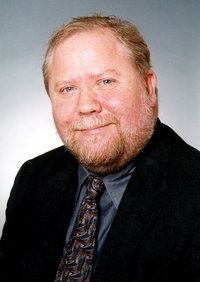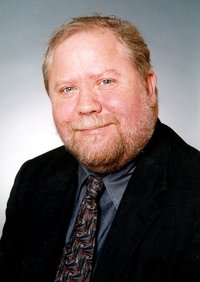
Shame on us if we don’t take the steps needed to feed knowledge to our democracy
[In October, the Knight Commission on the Information Needs of Communities in a Democracy issued its report on how our media need to evolve to serve the public interest in the digital age. The effort included some big names: Google’s Marissa Mayer, former solicitor general Ted Olson, ex-L.A. Times editor John Carroll, former FCC chairman Reed Hundt, and new media researcher danah boyd among them. Here our friend Eric Newton of the Knight Foundation explains how the report fits in a tradition of media self-examination and issues a call to action. —Josh]
Way back in the age of paper, in 1986, professor James Beniger, then at Harvard, produced a useful chart on the civilian labor force of the United States. It showed how the bulk of American workers had moved during the past two centuries from working in agriculture to industry to service, and now, to information. Point being: the digital age didn’t just sneak up on us. It’s been a long, slow evolution. So shame on us for not changing our rules and laws and institutions for this new age.
We were well warned. Just after World War II, the Hutchins Commission said that traditional media could do much better: they should take on the social responsibility of providing the news “in a context that gives it meaning.” In the 1960s, the Kerner Commission said mainstream media wasn’t diverse enough to properly tell the story of this changing nation. Same decade: the Carnegie Commission said the status quo was simply not working, that public broadcasting must be created to fill the gap.
Eric Newton
After that, a stream of reports — from the University of Pennsylvania, from Columbia University and others — agreed and repeated the same three fundamental findings:
— Hutchins: Our news systems are not good enough,
— Kerner: They don’t engage everyone,
— Carnegie: We need alternatives.
Here comes digital media, and — boom! — an explosion of alternatives. And we’re all — shocked? Apparently. So let’s try it again. This time, the big report comes from the Knight Commission on the Information Needs of Communities in a Democracy, prepared by the Aspen Institute with a grant from Knight Foundation, where I work.
A new examination of a familiar problem
Why a new commission? We are now deep into the second decade of the World Wide Web. It was our hope that when our leaders were finally ready to change things, they would consider a new perspective. Hutchins, Kerner and Carnegie and the others focused on what should be done to improve, diversify, add to — and nowadays the talk is to save — traditional media.
The Knight Commission started with communities, by visiting them and hearing from their residents. News and information, the commission says, are as important to communities as good schools, safe streets or clean air. Journalism, it says, does not need saving so much as it needs creating.
As a former newspaper editor, that last point seems pretty important to me. Of the nation’s 30,000 burgs, towns, suburbs and cities, how many are thoroughly covered by the current news system? Ten percent? Five? Less? We’re talking about knowing how to get, sometimes for the first time, the news and information we need to run our communities and live our lives.
Is the Knight Commission making a difference? We hope so. The Federal Communications Commission has hired Internet expert Steve Waldman to study the agency, top to bottom, thinking of reforms with Knight’s 15 recommendations in mind. Free Press, the nation’s largest grassroots media policy group, embraced the report, especially its call for universal affordable broadband. Ernie Wilson, dean of USC’s Annenberg School and chair of the Corporation for Public Broadcasting, announced he is boosting innovation in public media. CPB backed NPR’s Project Argo in a partnership with Knight Foundation.
Community lawmakers are agreeing with commissioner and former FCC chair Michael Powell’s points about “information healthy communities,” about the role of open government and public web sites in local information flow. Commissioner Reed Hundt, also a former FCC chair, presented the Knight findings to the Federal Trade Commission.
Librarians across the country are pushing the role they can play as digital training and access centers. In addition to its dozens of media innovation grants, Knight Foundation itself took the commission’s advice: it has made more than $5 million in grants to libraries.
Taking the next steps
Now what? The policy work needs to come down to the detail level. Steve Coll and New America Foundation are among those thinking about that. How can we really spur more marketplace innovation? How can government rules and laws make it easier for newspapers to be nonprofits, treat student and nonprofit journalists equally, require the teaching of news literacy?
The hard part is ahead of us: that is, involving every aspect of our communities in this issue, governments, nonprofits, traditional media, schools, universities, libraries, churches, social groups — and, especially, citizens themselves. How do you do that? How do you make “news and information” everyone’s issue? It’s a tall order, perhaps the most difficult thing of all.
Universities could help here. Nearly two thirds of the nation’s high school graduates at least start out in a college or university of some kind. These institutions could make news literacy courses mandatory for incoming students. Understanding and being able to navigate the exploding world of news and information is as fundamental to the college students of our nation as knowing English. Stony Brook has already been paving that path. There, nearly 5,000 students have taken news literacy under the first university-wide course of its kind.
Colleges could set an example for the rest of our institutions. We are, after all, at the dawn of a new age. Who a journalist is, what a story is, what medium works, and how to manage the new interactive relationship with the people formerly known as the audience — all of these are changing as we speak. The complete metamorphosis of how a society connects the data and events of daily life to the issues and ideas that can better its life — would seem to be something colleges should want all of its students to think about.
This is hardly a short-term project. It took more than 200 years for America to change from a country where most people work growing food to one where most people work growing information. It will take time for the wholesale rewriting of America’s media policies, not to mention getting up the guts to spend the trillion dollars or more needed to remake our access to high speed digital systems and ability to use them.
Yet all of this is needed for America to become an information-healthy nation. A nation without universal, affordable broadband is like a nation without highways and railroads. We would be stuck on the surface streets of the new economy, tracing our fall from a global force to a secondary society.
More than 70 years after Hutchins, the basic story is still the same. The country’s news and information systems still aren’t good enough, still don’t engage everyone and still invite alternatives. It’s time to start doing something about this issue. Our rules, the laws, the policies — even the high school and college classes we teach — these things matter to how the news ecosystem in any given community is shaped. They can speed innovation or stunt it. So pick a recommendation — the Knight Commission lists 15 — and have at it.
[Disclosure: The Knight Foundation is a supporter of the Lab.]
Recent Content
-
Journalismarticle ·
-
Journalismarticle ·
-
Journalismarticle ·



